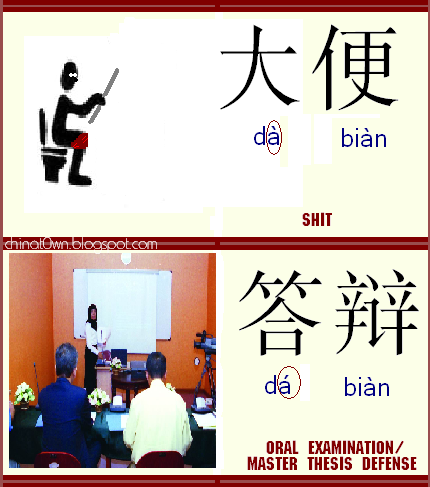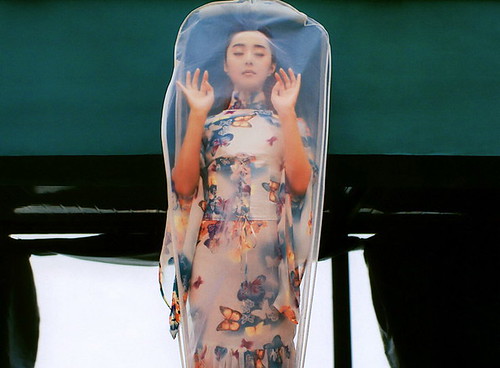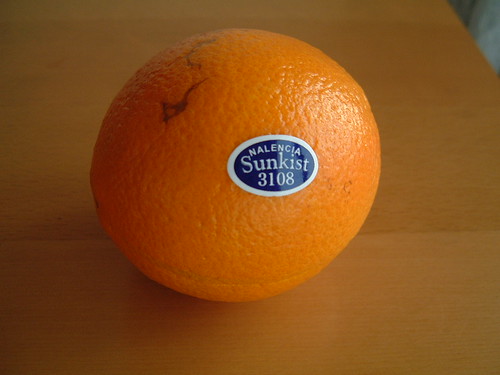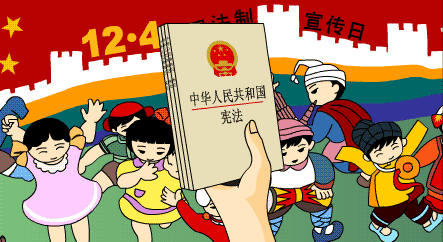20
Feb 2006Irate Football Fan
Two weeks ago was “Super Bowl Monday.” At 6am John B and I caught a taxi to Windows Scoreboard, the place the Carl said would be “the place” to catch the big game. Well, “the place” insofar as it’s a pretty decent sports bar, beer is cheap (in the Windows tradition), and you can even get a decent American breakfast for a reasonable price. Plus they were showing the Super Bowl through satellite TV, so we didn’t have to put up with that outrageous 15-second delay.
I’m not a big sports fan at all, but I enjoy a good football game from time to time. I’d never started drinking so early before, and it was a good reason to hang out with John B and Carl, my former roommate I hadn’t seen in a while.
Excited by the breakfast food which Carl assured us would be very tasty, I ordered a 30 rmb omelette with cheddar, bacon, onions, and tomatoes. I was really looking forward to that.
When we arrived at 6:30am, the place was fairly crowded, and breakfast orders were flying. I waited a good while for that omelette, and I was getting hungry. (Plus, like a wuss, I wanted to eat before I started on my beer.) At one point I decided to go up to the bar and check on my order.
There was a foreigner in front of me trying to put in a food order. He got the extremely busy waitress’s attention and started giving her his order (in English). She gave him an embarrassed laugh and told him she didn’t understand (in Chinese). The guy tried again (in English). She apologized again (in Chinese) and started to leave. I sympathized with the guy, because the bartender could take his English order, but the bartender was really busy too, and so the foreigner might have to wait another while just to put his order in, let alone actually eat. So I stepped in and told the guy I’d translate for him. I started telling the waitress in Chinese what the guy wanted.
The foreigner did not like that. He gave me a nasty, “I’d like to order my own damn food, if that’s OK with you.” So I immediately backed off and left the guy alone. I eventually got my omelette and it was goooood. (More memorable than the Super Bowl, in fact.)
So what was the guy’s deal? My interpretation is that the guy was just in a bad mood (maybe he was a Seahawks fan?), but maybe not… I wonder how many other foreigners would be pissed off by what I did. It’s been my experience that any newcomers with no language skills are typically grateful in a situation like that. But maybe the guy has been in Shanghai a while and he’s pissed off that he still can’t order food, and thought I was trying to show off? If the guy was trying to order food in broken Chinese but the waitress couldn’t understand him, I could understand how he would get pissed at me for butting in. I wouldn’t have said anything in a case like that. But he wasn’t speaking any Chinese at all.
I find these multilingual/cross-cultural exchanges and all the emotion-laden sociolinguistic baggage they come with to be very interesting.
18
Feb 2006Adding the pinyin quicktag in WordPress
A while back I wrote about adding pinyin tooltips using a little CSS and a span HTML tag. I later mentioned that I had worked a “quicktag” into my blogging interface. Today I’ll tell you how to easily add this button to your WordPress “Write” page.
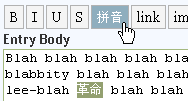
The pinyin quicktag in action
After installing WordPress 2.0, it took me a while to get around to uploading my custom quicktags.js file which includes the “pinyin” quicktag button. Since I add pinyin to words quite often, I was really annoyed by the loss of the button. It really makes adding pinyin so much more convenient.
16
Feb 2006Chinese Grammar Issues
This week I’m finally getting around to writing my two remaining final papers for last semester. Classes don’t start until something like the 27th though (I think). One of my assignments is to revise my paper on Chomsky according to my professor’s comments. That shouldn’t be too hard, except that she left a few questions on my paper that would seem to warrant entire essays of their own in order to answer. (Ah, she won’t remember what she wrote on my paper, right??)
The other essay is a response to one of the lectures given in a seminar course. The Chinese name of the course was 当代学术前沿讲座 which basically translates to “a bunch of boring lectures.” The only one I found remotely interesting was 汉语语法的问题和方法 (Issues and Methods in Chinese Grammar). So that sure narrows down my possible writing topics.
15
Feb 2006Defense and Defecation
I had to laugh when I stumbled across this the other day:
It’s an important tone difference which I learned a while ago but didn’t actually personally encounter much until this past semester as a grad student, when suddenly the word “dabian” kept popping up everywhere.
Just imagine (mis)hearing your professor tell the class: “I have to cancel class this Thursday because I have to take a dump.” The silly schoolboy in me inwardly giggled every time.
Image via chinat0wn.
14
Feb 2006V-Day Chinese Mail Order Brides!
Just in time for Valentine’s Day, direct shipping service of Chinese mail order brides has recently become avilable. Not only do they ship right to your door, but they arrive wearing the traditional qipao (旗袍). The clear shipping case ensures a few jealous looks from your neighbors as the delivery man sidles up to your door.
I for one applaud this all-out embrace of ultra-commercialized holidays. Not only do I love the over-priced Valentine’s Day rose bouquets, chocolate sets, and dinner deals that have become so common in Shanghai, but I love the Valentine’s Day mail order bride concept, which, for me, represents the ultimate in commercialized romance.
I think the shipping option pictured above may be a bit expensive, but here’s an insider tip: come live in China, and you save big on postage!
Even if you end up paying a lot in postage, remember: mail order brides are to be loved. Don’t abuse them.
11
Feb 2006Riding with Strangers in Yunnan
It was 2003, and I was spending my Chinese New Year vacation in Yunnan. I headed out there with a Chinese friend, but after hanging out in Dali (大理) and Lijiang (丽江) some, we soon found our vacation mindsets quite different, and we went our separate ways. I was more than happy to be wandering wild crazy Yunnan on my own. I headed to Jinghong (景洪), the starting point for most “treks” in the southern Xishuangbanna (西双版纳) area of Yunnan Province.
I won’t go into the details of the trek in this post, but it was a 40 km trek. It was supposed to take two whole days, but since I was doing it alone, I figured I’d start early, walk a little faster (at 6’4″ I have long legs), and do it in one day. The night before the trek I stayed in a pretty miserable little town and slept in a dirty little bed that was overpriced at 40rmb. I was off at dawn.
As the sun was setting, I had made it to the end of the almost 14-hour trek. I found myself walking through some little town, but evidently I was still a ways off from the bus stop that takes you to Jinghong. After walking through that town for about half an hour with blistered feet, I asked and determined that I was still 10km away from the bus station, so I caught a ride. I arrived at the station just in time to see a bus pulling away. Guess which one it was? Yes, it was the last bus to Jinghong.
At that point I had to make a decision. I had already paid for that night at my hotel in Jinghong. It wasn’t really a lot of money, but it seemed stupid to spend the night where I was. Although I really enjoyed the trek, there was no disguising the squalor of the villages. The people there understandably saw foreigners as money-making opportunities, which didn’t allow for many meaningful interactions. I was sort of getting into a “get there, understand, get out” mentality. I really felt I didn’t belong, and I was ready to go. Maybe I was experiencing the onset of travel fatigue.
If I didn’t want to spend the night in that village, though, what options did I have? The last bus was already gone. Seeing a fairly nice car coming down the road the bus had just left on, I did something impulsive. I went over to the car and asked the two men inside if they were going to Jinghong. They were. I asked if I could get a ride with them.
I have to explain here that I’m not the type of person that hitchhikes all the time. I’ve certainly done a fair bit of hitchhiking around Japan, from Tokyo to Fukuoka, but that’s Japan. That’s pretty much the only place I feel hitchhiking is really safe (at least for a big male foreigner like me). Yet that night in Yunnan, a sort of desperation came over me. I felt I just had to get out of there. I imagine it’s the same sort of feeling China as a whole gives some foreigners. We all have our own thresholds. Anyway, catching a ride in Yunnan with two men I didn’t know really didn’t seem like a bad idea at the time. They looked like decent guys.
So I got in their car, and we started chatting. They had driven down for the day on business. They had to collect gambling money for the boss or something like that. It was soon pretty obvious that these guys were some kind of gangsters. I had hitched a ride at night with gangsters in China’s drug capital.
It was really dark. There are a lot of remote roads in Yunnan, and not enough public funding for street lights. I really had no idea where we were going. I just knew that the two guys had said they were going to Jinghong when I asked. I tried not to think about it. It was well into the trip, when we were driving down a desolate tree-lined road that one of the guys turned to me and asked, “do you know where we’re going?”
“Jinghong,” I told him, trying to disguise a rising feeling of alarm.
“Jinghong, huh?” he replied, smiling. He gestured to the road ahead and the spookily lit trees, cradling the dark road like claws. “Does this look like the road to Jinghong?”
I don’t even remember how I replied. The two were looking at each other and laughing. I wasn’t sure what to think or what to do. The guy didn’t say much after that.
As more time passed, it became clear that we were almost to Jinghong. The guy had been joking with me. He and his friend’s chatter about drinking, gambling, and whoring hadn’t exactly assuaged my fears that these guys were dangerous, but at least they really did intend to take me all the way to my hotel as they promised. They tried to get me to go drinking and whoring with them, but those invitations were easy enough to deflect. I slept really well that night.
Yeah, I have to say, hitchhiking in China isn’t the best idea. I’m lucky all I got was a scare. I don’t remember what the guys looked like, but I very clearly remember that dark road, and the guy asking me, “Does this look like the road to Jinghong?”
That trip to Yunnan was pretty awesome.
Related Link: Yunnan photo album (2003)
09
Feb 2006Inherent human worth
I am a grad student, and I’ve been doing part-time English tutoring and translation work to pay the bills. As a tutor, I sometimes have English sentences to correct. I recently got this sentence (more or less):
> It’s common for people to envy the people who are better than them.
During the lesson, I told my student that the sentence was grammatically correct and the vocab word “envy” was used correctly, but I couldn’t help but find it funny. It reminded me of the play insults my little sister and I used to sling at each other in high school, or that spunky hillbilly in the movie, picking a fight with the snooty aristocrat using the line, “you think yer better’n me??”
I explained to my student that blatant statements of one human’s inherent superiority over another are either ridiculously elitist or racist in nature, and frowned upon (officially) by the West, where we (in name, at least) adhere to the concept that “all men are created equal.” My student didn’t really understand what I was getting at, so I explained it this way:
> Let me compare myself with Bill Gates. You may say he’s richer than me. Well, yes, he certainly is. You may say he’s more powerful, more successful, and harder-working than me. I can accept all that. But if you say Bill Gates is better than me, I have to disagree. As humans, we are equal.
To my surprise, she still took issue with my point. She was nice enough not to say I’m worthless compared to Bill Gates, but she still held that some people are just better than others. Eventually I understood what I think her point was, and that was something to the effect of value to society. I’m not sure if I was able to explain the difference between “value to society” and “inherent human worth.”
In the end, we adjusted her sentence thusly:
> It’s common for people to envy the people who are better off than them.
Sometimes you really can’t guess what will be difficult to explain.
07
Feb 2006CCTV's Li Yong

A recent post by Micah reminded me about this guy Li Yong (李咏). Before I followed Micah’s link to the NY Times article on Li Yong, I didn’t even know who Li Yong was, but upon seeing the picture accompanying the story, I was all, “Oh, that guy!”
This guy is extremely familiar to those of us who have lived in China for long because he has hosted quite a few of CCTV’s Chinese New Year Craptaculars (春节联欢晚会) in recent years. If you watch a lot of Chinese TV (I sure don’t), I suppose you might know him from other programs as well. He’s immediately recognizable because of his long hair and often weird clothing. I don’t really have any feelings about the guy one way or another. Really, all I wanted to know was his name. When a face becomes that familiar, it’s good to have a name to go with it.
Finally, a question for those with more native-like Chinese than my own. Is 咏 a really weird character to use for a name or what? When I started searching for a pic of the guy based on just the pinyin (no tone), I needed to guess at the characters, and I figured “Yong” was probably either 勇 or 庸 (like 朱德庸). I had to change tactics because none of my guesses were right. 咏?? 咏 means to recite or chant or something. Is this not a bizarre choice of characters for a name?
05
Feb 2006Google Acting Up
The internet has been really slow for me in Shanghai lately. These periods of sluggishness come and go, but it seems that they often coincide with new sites being blocked.
Those who follow current events in China know that Google has recently set up Google.cn, which will comply with the PRC’s filtering desires. I agree with Jeremy that this, in itself, does not amount to some betrayal of the internet on the part of Google, but Rebecca MacKinnon got to the crux of the matter when she asked:
> …what happens if the Chinese netnannies use the existence of Google.cn as an excuse to block the U.S.-hosted Google entirely? That would be very bad. And if that happens, how will Google respond? Will they shrug their shoulders and sigh? Or will they push back?
Personally, I don’t think Google will do a whole lot. Hopefuly the public outcry will be enough to have some effect.
I’m hoping it’s just a temporary glitch (these things do happen), but Google is not loading for me at all right now.
Update: Google was accessible again by the following morning.
03
Feb 2006Remember that calendar we always use?
With Chinese New Year comes many annoyances. Nonstop fireworks for a week ranks up there pretty high. But another thing that annoys me is that during the Chinese New Year season, Chinese people lose the ability to refer to dates using the normal calendar. I use the word “normal” not in an ethnocentric way, but in the sense that it is the calendar that all of China uses for the other 50 weeks out of the year. When Chinese New Year comes around, however, attempts to use non-lunar date nomenclature result in East-West communication breakdown.
Witness:
> Me: Let’s do it on February 2nd.
> Person: I’m not free on the 4th day of the lunar new year.
> Me: OK, so is February 2nd OK then?
> Person: Is that the 4th or the 5th day of the lunar new year?
> Me: I don’t know. It’s February 2nd. February. Second.
Even bizarrer:
> Me: So can you come next Wednesday?
> Person: Wednesday? What is that, the second day of the lunar new year?
> Me: Wednesday. You know, Wednesday.
> Person: Oh wait, I think that’s the fourth day of the lunar new year…
Call me culturally intolerant, but this is super annoying. The latest casualty of this phenomenon was me missing out on a meal cooked by my awesome ayi, Xiao Wang. Oh well. She deserves another day off for the holidays anyway.
One of these years I’ll get around to realigning my temporal frame of reference to the moon just two weeks out of every year. But until then I will be annoyed for those two weeks a year.
01
Feb 2006Pirated Orange
Evidently a V is just too much work for those fruit pirates. Nalencia, baby!
Fruit piracy must be an easy job, considering all you have to do is print a bunch of little stickers and then sell them to vendors. Hmmmmm…
(This is by no means the first fake Sunkist sticker I’ve seen in China, it’s just the first time I bothered to take a picture of it.)
31
Jan 2006Work Work Work
It is now Year of the Dog, and I find myself working during my vacation. What am I working at? Well…
– This past weekend it was getting the site online at the new server. That’s now mostly done.
– Now it’s a big freelance translation job. Ahhh, translation… the work I love to hate. It certainly pays well over Chinese New Year, though. (Supply and demand, you have been kind to me this once…)
– Map editing. I took a freelance map editing job. Weird. I don’t mind it, but the worst part is I’m having trouble finding good maps in Shanghai! Even worse is that most Chinese maps don’t even list the scale to which the map was drawn. Cartographer fools!
– Class work. In the Chinese system, your final paper is due after the winter break. After you turn it in you get your grade. What kind of stupid procrastination-encouraging, vacation-ruining system is this?!
So that’s why posting has been light. There is proof out there that my vacation has been at least partially fun, though.
And, finally, I leave you with an example of horrible, horrible Chinese Flashmanship. I mean, really… what is the point of this crap??
26
Jan 2006Moving to a new server
I’m in the process of moving my whole site to a new server. What a headache. I think it will be worth it, though.
Anyway, you won’t see any new entries for a little while, and if the site goes down at all, you know why.
Please don’t comment until I say that everything is working on the new server, or your comment may be lost. Thanks.
UPDATE: I have hit a major snag which will probably delay the move quite a bit. My WordPress database on my current host is encoded in UTF-8. The database on the new host is also encoded in UTF-8. As far as I can tell, the encoding is preserved through every step of the export/import process. Why, then, do Chinese characters come out garbled? Not cool.
25
Jan 2006A Chinese View on Narnia
I’ve been looking forward to seeing the new movie The Lion, the Witch, and the Wardrobe. I read (or was read) all those books when I was in third and fourth grade, and enjoyed them immensely. I don’t remember them very well, so I was looking forward to rediscovering some of that feeling when I saw the movies.
I watched the movie with my girlfriend, who is Chinese. She was not familiar with the stories, and was not raised in the Christian tradition, so she had quite a different take. I liked the movie well enough. She didn’t like it.
Here are some of her comments:
– [About the four kids:] I don’t like these kids. They’re all so pasty and pathetic looking.
– [When the White Witch is killing Aslan on the stone and Lucy and Susan are watching:] Why don’t they do something? I can’t stand weak characters like that!
– [As the battle begins:] Aslan sacrificed himself for that lame kid? None of these kids can even fight!
– [During the coronation of the four:] Those are the four most useless kings that ever lived.
– [When Aslan leaves:] If those four are the kings, then what’s Aslan?
24
Jan 2006Windows Too
Windows is a “chain” of bars in Shanghai. The original Windows bar was so successful that Windows Too was opened, followed by Windows Tembo and Windows Scoreboard. A segment of the Shanghai population considers Windows trashy, and not without reason. I still think Windows is not bad at all, though, for the following reasons:
1. The drinks are really cheap. 10 rmb gin and tonics! All drinks are 10 or 20 rmb. (Drinks in most Shanghai bars start at 30 or 40, and I’m not talking about the expensive bars).
2. Even on Sunday night when other bars are deserted, the place gets pretty packed.
3. Cheap drinks!
4. People dance. It’s just a fun atmosphere. (No snobs in Windows!)
5. Drinks… cheap!
Since the Windows model has obviously been successful enough to open three additional bars, I wonder why more bars aren’t copying it. The model is basically: (1) cheap drinks, (2) popular hip hoppish music. Nothing remotely fancy or difficult. As best as I can guess, the model is not being copied because (1) bar owners like to be pretentious, and (2) most people in Shanghai like pretentious bars. (They call it “class” but they’re not fooling me.)
Windows Too is a bar in Shanghai I have had fun at on multiple occasions. I can’t really say the same about any other bar except for the now gone Tanghui and the legendary Excalibur Rocks behind the Portman, which I found out the other day has already disappeared into some new construction site (don’t cry, Greg). Of course, the best time I ever had at Excalibur Rocks was largely due to one Jamie Doom, but that’s another story…
19
Jan 2006In China, Babies Sell DVDs
A scene I imagined, based on real events:
> The middle-aged woman knocked on the dingy office door. “Shei ah?” an impatient man’s voice cried from within. “What do you want?”
> “I was hoping I could get a job,” the woman replied. “I have experience selling on the streets, and my friend Xiao Li told me you need DVD vendors.”
> The door opened and the woman was admitted. “Yeah, we do. Not just any DVDs, though. These are adult DVDs. You know how to sell adult DVDs?”
> “Well, I know how to avoid the cops, and I know I should target young men…”
> “No kidding, genius. But do you know the key?”
> “Well, I do have a baby…”
> “Yes! Perfect! That’s it! How old is the baby?”
> “Only 6 months.”
> “Great. We don’t need him talking and screwing up sales. You just need him on one arm while you push these yellow DVDs with the other. Lady, you and that baby of yours were destined to sell my porn DVDs.”
OK, this may seem like a bizarre dialogue, but it’s true that there is a trend in Shanghai of woman holding babies selling adult DVDs. In a group of three women all selling DVDs, all three of them will be holding a baby! I really don’t understand it. I rarely see any other kind of vendor with a baby.
If I were going to buy adult DVDs, (1) I wouldn’t want to buy from a woman, and (2) I certainly wouldn’t want to buy from a woman holding a baby! And yet, on the bridge that crosses Suzhou Creek at West Zhoushan Road, I regularly see these women peddling porn with their babies, and I see men buying them.
Is the Chinese male’s psyche really that different?
18
Jan 2006Law Abiding Education
It’s time for a special treat. In fact, today you get two great treats in one: Flash animation and modern Chinese propaganda! It’s cheesey. It’s trippy. It’s got music, a disembodied constitution-procuring hand, voting, lime green birds, and a scene stolen directly from Disney’s “It’s a Small World After All.” Perhaps most mystifying is the fact that for all the people that appear in the cartoon, there is exactly one nose. Check it out for yourself.
17
Jan 2006No Wendy's in China

Wendy’s Ad
While reading an article (via John B’s latest blog) about how awesome my alma mater is at basketball this season, I came across this Wendy’s ad.
My first thought was, “Wendy’s would have a hard time succeeding in China.”
My second thought was, “I hope, for the sake of my own health, that Wendy’s never comes to China.”
16
Jan 2006My Ayi Crush
About a month after saying goodbye to Zhou Ayi (the housekeeper that went bad), I found a better job that once again enabled me to be home evenings for a cooking ayi. I was not at all discouraged by my previous bad experience; I was ready for a new ayi (and so was the apartment).
I used the “agency method.” When I walked into the little office, there was a woman at a desk, several middle-aged woman sprawled across chairs around the room, and a youngish woman knitting in the corner. The woman at the desk ventured a cautious ni hao at me, and 5 minutes later, after paying a one-time 30 RMB administrative fee, I was talking to my new ayi. She was the one in the corner knitting.
My new ayi was in her thirties, a little too young to be an “ayi” really, since someone you address as “ayi” is usually roughly in your mother’s generation. She wanted me to call her Xiao Wang.
Xiao Wang was from China’s northeast, from a town outside Harbin. She spoke with a fairly strong Dongbei accent, but I didn’t find her hard to understand. I’ve always found the Dongbei cadence to be rather amusing, so while I can’t consider it “normal,” I still like hearing it from time to time. Maybe it was partly because of my last experience, but I was soon crazy about my new ayi.
Don’t get the wrong idea, now… at no time were there any inappropriate thoughts. It was just that to me, Xiao Wang was everything I thought an ayi should be. And I was so relieved to have a great ayi in charge of the housework once again that even her faults somehow seemed endearing. It was a kind of crush, all right.
Some of Xiao Wang’s qualities:
– She actually gets dishes clean.
– Her cooking is not oily.
– She never makes just qingcai. She adds hot peppers to them. Tasty!
– She talks with that great accent, with the wrong tone on the occasional word.
– If you ask her not to clean/tidy an area, she stays well away. (She never goes in Lenny’s room… hehe)
– She forgets things a lot. (The first week, she forgot to bring the new mop three days in a row.)
– She gets food for cheap. She knows, for example, that vegetables are cheaper at noon than in the evening, and cheaper on weekdays than on weekends (and takes advantage of that fact). Our food bill is now less than half what it was under Zhou Ayi.
– She voluntarily writes down all her expenses for me — every single item she buys.
– She makes authentic Dongbei dumplings for us and calls it a meal. (She even made enough to freeze a bunch to eat later.)
– She throws carrots into a lot of dishes that I’ve never known to have carrots.
– She has no watch and forgets to check the time, so she frequently stays past the two hour mark. I often find myself urging her to get on home to her family.
– She makes good kung pao chicken — without those annoying tofu pieces that get in the way of the meat.
– She almost always arrives 10 minutes late, and apologizes every time.
– She refuses to taste her own food, relying on my description of the taste to make any changes to a recipe.
– She keeps the house really clean.
– She doesn’t know how to use her cell phone except to make and receive calls. (I thought I’d do her a favor and teach her how to use her phone to receive and send text messages, but then I discovered that “Bird” phones really are impossible to use.)
– For the first month, she complained repeatedly about how dirty the kitchen was, and that she didn’t understand how the previous ayi could have let it get that bad.
Needless to say, Xiao Wang is great. My girlfriend loves her. John B and his wife love her. Lenny likes her. We moved from the hourly wage to the monthly payment system pretty quickly and gave her a decent raise. We hope she sticks around a while.
This entry is the final part of a series on ayis. See also: To Ayi or Not to Ayi, The Ayi System, Farewell to Ayi
13
Jan 2006Living in China is like an RPG
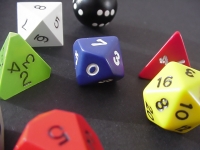
nerdy RPG dice
For a foreigner, living in China can be like a (classic, non-computer) RPG. Let me count the ways…
1. It offers an escape from an ordinary, monotonous existence
2. It appeals to nerds
3. There’s more than a reasonable amount of dice rolling going on (Chinese bars)
4. Money is counted in “pieces” (块)
5. The fast way to do things is “on horseback” (马上)
6. Dragons are real (恐龙, lit. “terrible dragons”)
7. Players usually enter the game with special abilities (e.g. English, foreigner charm)
8. It’s really fun at first, but can get old pretty fast
9. It takes place in a magical world where people believe in mystical concepts like qi and fengshui
10. The people take legends very seriously (even 5,000 year old ones)
11. The word “peasant” doesn’t seem out of place
12. There are plenty of barmaids in the taverns and women of ill repute on the streets
13. The background story: a legendary kingdom has fallen under the control of a powerful, malevolent force, and heroes are nowhere to be found…

